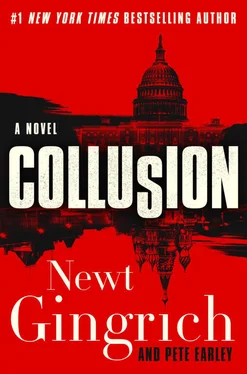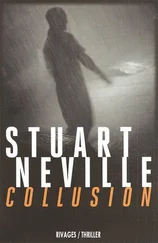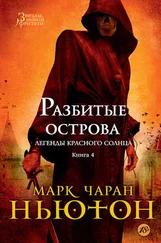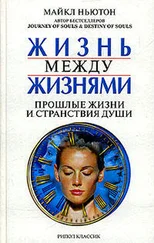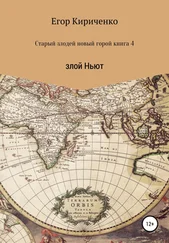“Arkansas,” the woman repeated with a wrinkled smile. “I have a niece who lives in Fayetteville.”
“Tusk. The Big Red,” he replied.
A confused look.
“University of Arkansas. School mascots. Razorbacks.”
“Oh,” the woman replied, “no, my niece moved there. She graduated from Black Hills State up in South Dakota.”
“Then she’s a Yellow Jacket.”
“You certainly know your college mascots.”
Garrett’s father had been a high school baseball coach who’d dreamed of moving up to the college level from his Genoa High School team—the Dragons. East of Texarkana, off Highway 196. His old man had started grooming him as a pitcher as soon as Garrett was old enough to hold a baseball. Pressuring him, making him spend hours practicing, convinced his boy would make the pros. In high school, he’d held the record for an Arkansas high school kid throwing the fastest pitch ever—nearly a hundred miles per hour. His mother had been quiet, a librarian. Both killed when his inebriated father had plowed their car into a tree late one Friday night. Garrett was out with friends, having just graduated from high school. He’d not thrown a baseball since then. Nor had he gone back to Arkansas. Now he was an addict. Just like his old man.
“It was nice speaking to you,” the older passenger said as she maneuvered herself into the aisle to deplane.
Garrett spotted the four of them waiting in the terminal as soon as he exited the gangway. Who but federal agents could greet an international passenger prior to Customs and Immigration?
One was wearing a blue Transportation and Security Administration (TSA) shirt; two others wore coats and ties, and the lone woman a gray pantsuit. She flashed a U.S. State Department credential as he approached; the tallest man showed an FBI badge, the third simply said he was “Ted,” a tipoff that he was CIA. The TSA worker was merely an escort whose name was of no consequence.
“We’ve come for the flash drive,” Ted said, thrusting an open palm out like a neighborhood bully demanding another child’s Halloween candy. His curtness irked Garrett. As a SEAL, he’d learned to study faces, interpret voices, spot tells like tea leaves in the bottom of a cup read by a fortune-teller. Garrett looked at Ted and saw contempt in his eyes. Judgment. Cameroon. But more. Ted was selling wolf tickets, talking tough without the cojones to stand his mud. A desk jockey.
“Back off,” Garrett said. “Thorpe asked me to give it directly to the president.”
Ted smirked.
“We understand,” the State Department woman said, playing conciliatory. “That’s what you said in Kiev after you first reported receiving it and then refused to turn it over. But you are here now, and we’d like to have it.”
“Get real, Garrett,” Ted said. “The president isn’t going to meet someone like you. Now, hand it over.”
Maybe it was a lack of sleep. Maybe it was the Suboxone. But it probably was Ted’s attitude.
“I think I’ll hold on to it. You don’t look like the president,” Garrett said.
“Listen, smart-ass,” Ted replied. The blue veins in his neck were beginning to surface.
“Let’s not make a scene,” the woman interrupted in a hushed voice.
Garrett glanced around the gateway. His elderly seatmate had hesitated a few feet away and was watching, as were many of the passengers still walking off the flight. It would be only a few moments before someone pulled out a cell phone and began recording.
Garrett had never believed the president would meet him personally. Still, he didn’t like being treated as a mere errand boy, even if that was his only role. It wasn’t only his ego that had kept him from surrendering the flash drive in Kiev. The three attackers had escaped through an unmarked exit. Maybe they’d simply been lucky. Maybe they’d done due diligence. Or maybe someone had helped them. Gotten them inside early. Told them about the side exit.
“Mr. Garrett,” the State Department woman said quietly, “your promise will be kept. The White House sent us here and the president is appreciative, but this flash drive is now part of an international murder investigation, and the three of us have been delegated by our agencies to secure it on behalf of a joint federal task force.”
“That doesn’t include you,” Ted said.
“Then put it in writing,” Garrett replied. “Give me a receipt.”
“You’re joking, right?” Ted scoffed.
“Chain of custody,” Garrett replied. “Doesn’t need to be too detailed. For you, Ted, we can keep the words simple—‘One flash drive given by Ambassador Stanford Thorpe in Kiev to Brett Garrett who is now surrendering it to me, as an official of my respective agency with my personal guarantee that it will be delivered to the president of the United States.’ That will do nicely.”
“I’m not giving you any damn receipt,” Ted snarled.
“Mr. Garrett, I’m not entirely clear why you need a receipt,” the woman said.
“If what’s on this flash drive somehow leads to a congressional investigation, I want a paper trail. I’ve already had a target on my back once. In fact, let’s include something about how I have no knowledge of the flash drive’s contents.”
“We don’t know that though, do we?” the woman said. “You could have opened it.”
“You just asked me to trust you,” he replied. “I guess you’ll have to trust me now? Besides, it’s password protected.”
“Then you have looked at it,” Ted said. “Hand over the damn drive now.”
Garrett let his backpack slip from his fingers onto the carpet. His hands were freely hanging at his side. Ready.
“Gentlemen, none of this macho posturing is necessary,” the woman whispered. Reaching into her purse, she removed a notepad and began writing. She signed it and handed to the FBI agent to read. He signed it and passed it to the TSA officer who was standing next to him.
“Hey, man, I got no idea what this is about,” the TSA worker said. “They told me to escort you to the gate. I’m not signin’ nothin’.”
Garrett said, “I don’t need your signature.” He looked at Ted.
Ted ripped the paper from the TSA officer’s hand. “I’m not signing this, either.”
The woman started to say something, but Garrett cut her short. Plucking the paper from Ted, he said, “Ted, right?”
Garrett wrote: “Also present, Ted—CIA.” He then slowly folded the note and tucked it in his back pant pocket. “Two signatures should be enough.”
From his backpack, he removed the flash drive, ignored Ted, who was still standing in front of him, and gave it to the woman.
“Thank you,” she said. “You’ll need to be debriefed.”
“Later, after a warm shower,” Garrett said. “But not by Ted. I’m a civilian now. I might need to check with my lawyer to see if I can cooperate.”
Ted glared at him as the others turned to go. “You’re a national disgrace,” the CIA operative said.
Garrett watched Ted rejoin the others. Twenty minutes later, Garrett emerged from the airport’s terminal and spotted a black Mercedes-Benz GLS 550 SUV parked next to a sign that said NO STOPPING and NO LOITERING.
Thomas Jefferson Kim stepped out from behind its wheel.
“If you’re so damn important, why don’t you have a driver?” Garrett asked, tossing his backpack into the SUV’s rear and slipping into the front passenger’s seat.
“Don’t you start ragging me about my driving. It’s racist just because I’m Korean.”
“It’s got nothing to do with your ethnicity. It’s got everything to do with you almost getting me killed every time I ride with you.”
Kim grinned and pulled away from the curb directly in front of a car whose driver had to swerve.
Читать дальше
